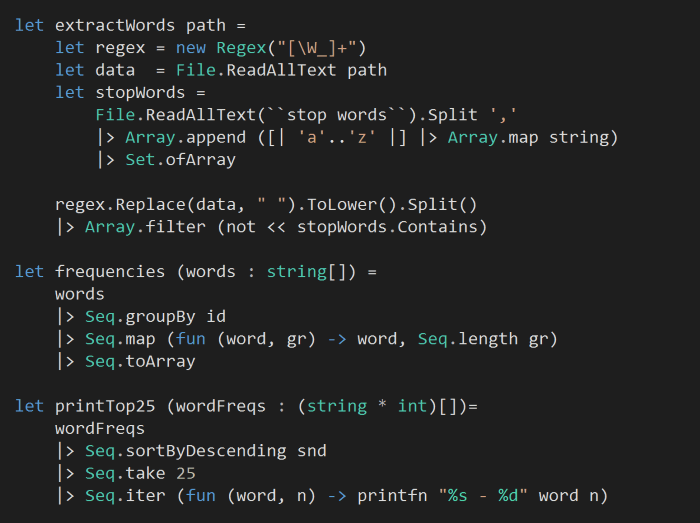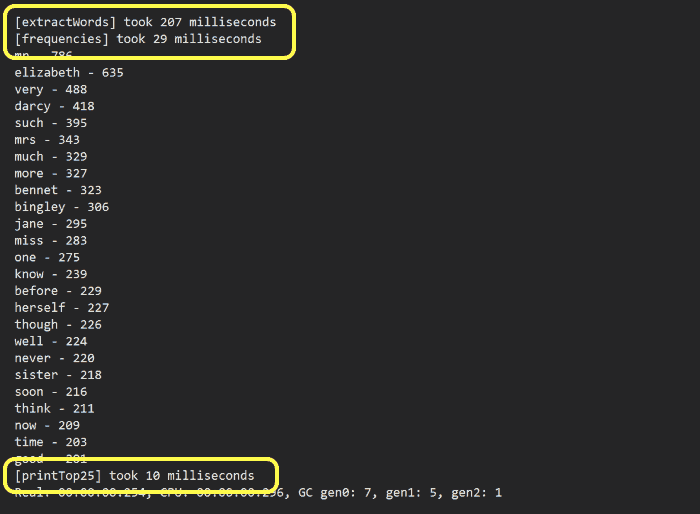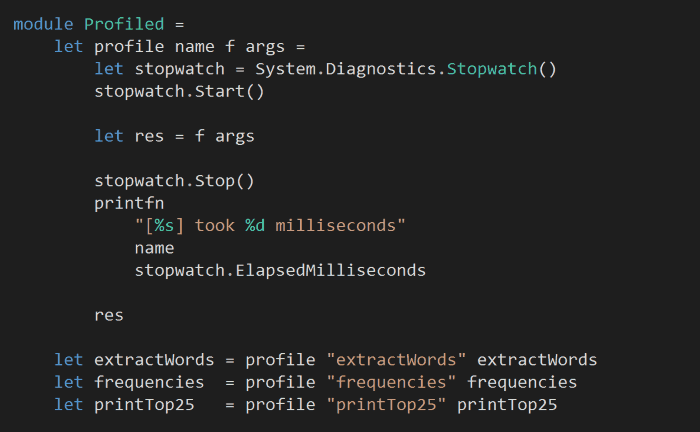
Yan Cui
I help clients go faster for less using serverless technologies.
NOTE : read the rest of the series, or check out the source code.
If you enjoy reading these exercises then please buy Crista’s book to support her work.
Following on from the last post, we will look at the Aspects style today.
Style 18 – Aspects
You may also know this style as Aspect-Oriented Programming, or AOP for short. I’m a big fan of the paradigm and have often written about it in the past.
Constraints
- The problem is decomposed using some form of abstraction (procedures, functions, objects, etc.).
- Aspects of the problem are added to the main program without any edits to the source code or the sites that use them.
- An external binding mechanism binds the abstractions with the aspects.
In her example, Crista used Python’s metaprogramming capability to override the original functions with a new version that has the aspects applied already. Let’s see what we can do in F#!
Starting with the abstractions:

we want to chain them together at the end of the program:
![]()
and get the following outputs (note the timing of the function calls have been logged):

Unfortunately, if we try to define the same function twice (once for the abstraction, and then again to shadow it with the profiled version) the F# compiler will bark at us.
But, there’s a easy way to get around this.
Remember how, by opening the Checked module all the arithmetic operators are shadowed with versions that does overflow/underflow checks? We can apply the same technique here:

If we just open the Profiled module we’ll shadow the original abstractions with the profiled versions!
Now, if we chain the abstractions together (the call site) we’ll get the output that we expected.

You can find the source code for this exercise here.
Whenever you’re ready, here are 3 ways I can help you:
- Production-Ready Serverless: Join 20+ AWS Heroes & Community Builders and 1000+ other students in levelling up your serverless game. This is your one-stop shop for quickly levelling up your serverless skills.
- I help clients launch product ideas, improve their development processes and upskill their teams. If you’d like to work together, then let’s get in touch.
- Join my community on Discord, ask questions, and join the discussion on all things AWS and Serverless.

